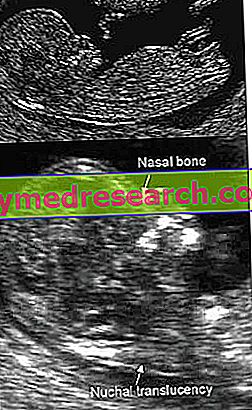SINECOD TOSSE ® is a drug based on Carbocysteine
THERAPEUTIC GROUP: Mucolytics
IndicationsAction mechanismStudies and clinical effectiveness Usage and dosage instructionsWarnings Pregnancy and lactationInteractionsContraindicationsUndesirable effects
Indications SINECOD TOSSE (fluidifying) ® - Carbocysteine
SINECOD TOSSE ® is indicated in the treatment of respiratory diseases characterized by cough and phlegm.
Mechanism of action SINECOD TOSSE (fluidifying) ® - Carbocysteine
SINECOD TOSSE (fluidifying) ®, as its name suggests, is a drug used in a clinical setting to reduce the density and viscosity of mucus, facilitating its elimination.
Unlike acetylcysteine, whose main function is to degrade the mucous component, Carbocysteine exerts an indirect mucoregulatory action, improving the chemical-physical characteristics of the mucus through the optimization of cellular biosynthetic processes, reducing the synthesis of sialoproteins and increasing that of glycoproteins.
These changes in composition combined with the greater secretion of chlorine with the consequent increase in the water component of the mucus, make it more fluid and less dense, facilitating its evacuation through sputum.
However, Carbocysteine also has a significant antioxidant and cytoprotective action.
After its activity, the active principle is eliminated mainly through the urine.
Studies carried out and clinical efficacy
CARBOCISTEINE AND BACTERIAL CHARGE
Respirology. 2010 Oct; 15 (7): 1064-71. doi: 10.1111 / j.1440-1843.2010.01816.x. Epub 2010 Aug 27.
Experimental study that demonstrates how Carbocysteine can reduce the bacterial load present in the airways of potential smokers, favoring their clearance and thus exerting both preventive and therapeutic action.
CARBOCISTEIN IN PEDIATRIC AGE
Cochrane Database Syst Rev. 2009 Jan 21; (1): CD003124. doi: 10.1002 / 14651858.CD003124.pub3.
Interesting metanalysis study that demonstrates how Carbocysteine may present a therapeutic potential in patients over 2 years of age with infections of the upper respiratory tract. Despite the apparently advantageous results, it would still be appropriate to investigate further, given the low number of participants.
CARBOCYSTEINE IN CHRONIC RESPIRATORY DISEASES
Respiration. 1996; 63 (3): 174-80.
Italian work that demonstrates how the continuous administration of Carbocysteine can be effective in preventing exacerbations during chronic obstructive pathologies, without determining particular side effects.
Method of use and dosage
SINECOD TOSSE (fluidifying) ®
5% syrup Carbocysteine.
Dosages and timing of intake should be defined by the physician based on the patient's needs.
As a general rule it is advisable to divide the entire dosage into 3 daily administrations spaced from each other for at least 8 hours.
The therapeutic range generally ranges between 10 and 45 ml of syrup per day.
Warnings SINECOD TOSSE (fluidifying) ® - Carbocysteine
The use of SINECOD TOSSE (fluidifying) ® should always be preceded by a careful medical examination in order to clarify the origin of the respiratory disease and the possible therapeutic process to be pursued.
The use of mucolytics, although it is generally safe and free from clinically relevant side effects, could cause respiratory difficulties especially in those patients with reduced expectorant abilities such as children and the elderly, thus causing broncho-obstruction.
SINECOD TOSSE (fluidifying) ® contains para-hydroxybenzoates, excipients with a strong allergic power and therefore dangerous especially in atopic patients.
PREGNANCY AND BREASTFEEDING
The aforementioned contraindications also extend to pregnancy and the subsequent breastfeeding period, given the absence of studies able to characterize with certainty the safety profile of Carbocysteine for the health of the fetus and infant.
Interactions
Although currently not known pharmacological interactions are known, it would be advisable to avoid the simultaneous intake of Carbocysteine and antibiotics containing particular chemical groups such as tetracyclines, erythromycin, amipicillin and amphotericin B.
Contraindications SINECOD TOSSE (fluidifying) ® - Carbocisteina
The use of SINECOD TOSSE (fluidifying) ® is contraindicated in patients who are hypersensitive to the active ingredient or to one of its excipients and in patients with gastro-duodenal ulcer.
Undesirable effects - Side effects
The use of SINECOD TOSSE (fluidifying) ® is generally well tolerated and has no clinically relevant side effects.
Abdominal pain, nausea, vomiting, diarrhea and dizziness are generally the most frequent adverse reactions, while those of hypersensitivity to the drug are rarer.
Note
SINECOD TOSSE (fluidifying) ® is a drug not subject to mandatory medical prescription.



